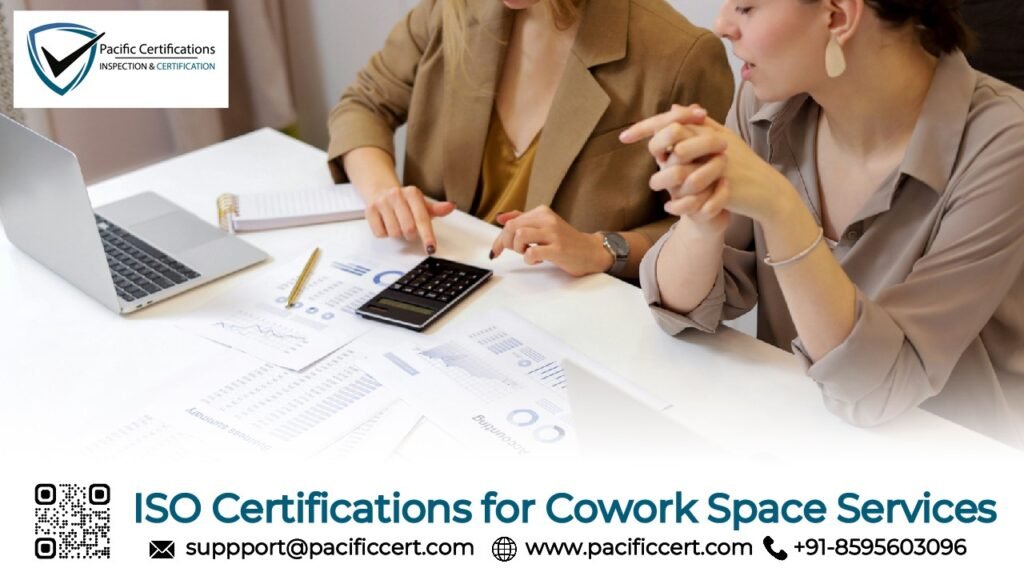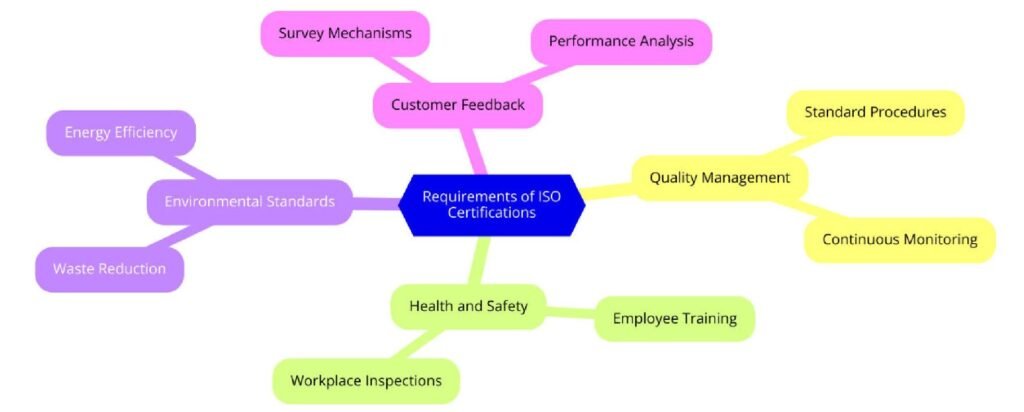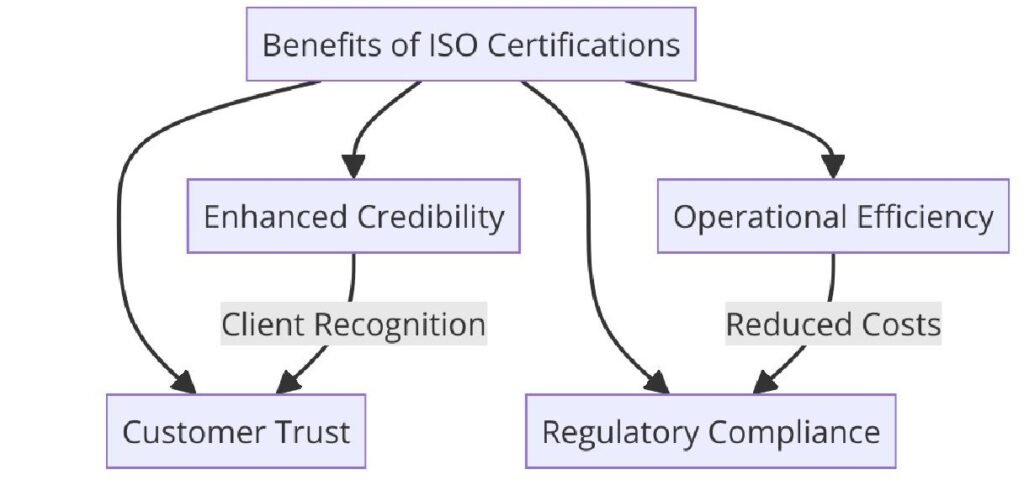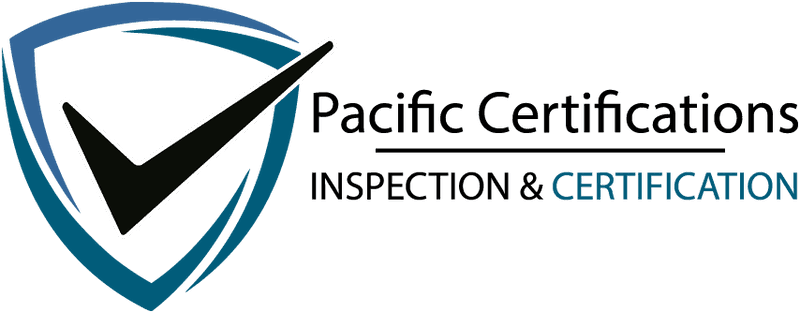
ISO Certifications for Co-work Space Services Businesses, Requirements and Benefits
In a world driven by collaboration and flexibility, Co-working spaces are redefining how people work and interact. With the growing demand for Co-working environments, ensuring sustainability and customer satisfaction has become more crucial than ever. ISO certifications for Co-work space services provide the framework to achieve these goals and aligning services with international standards.
ISO, the International Organization for Standardization, sets globally recognized standards to improve processes, ensure quality, and promote efficiency across industries. For Co-working spaces, achieving ISO certifications is no longer a luxury but a strategic necessity. With customers and businesses increasingly prioritizing quality and sustainability, ISO certifications validate that a Co-working space operates with global benchmarks in mind.

Co-working spaces involve multiple aspects—safety, cleanliness, operational efficiency, sustainability, and customer satisfaction. ISO standards are pivotal in ensuring these facets meet international quality benchmarks, helping Co-working space providers build trust and credibility among clients and stakeholders.
For any inquiries or to start your certification process, email us at support@pacificcert.com. Our team is ready to assist you.
Applicable ISO Standards for Co-work Space Services
Several ISO standards apply to Co-working spaces, addressing diverse aspects such as environmental management, health and safety, service quality, and information security. Below are the most relevant ones:
ISO 9001: Quality Management System (QMS): ISO 9001 focuses on improving the overall quality of services, ensuring Co-working spaces consistently meet customer needs and regulatory requirements. By implementing ISO 9001, Co-working providers can establish efficient workflows, reduce operational errors, and enhance customer satisfaction.
ISO 14001: Environmental Management System (EMS): Sustainability is a growing concern among Co-working space users. ISO 14001 helps organizations manage their environmental impact, reduce waste, and use resources more efficiently. A Co-working space with ISO 14001 certification demonstrates its commitment to eco-friendly practices, which appeals to environmentally conscious clients.
ISO 45001: Occupational Health and Safety: The health and safety of employees and clients in Co-working spaces are paramount. ISO 45001 ensures that your space complies with global health and safety standards, identifying risks and implementing measures to create a safe working environment.
ISO 27001: Information Security Management: In today’s digital age, Co-working spaces often handle sensitive client information. ISO 27001 ensures that proper protocols are in place to protect data from breaches, theft, and misuse, thereby strengthening trust and security.
ISO 50001: Energy Management System: Energy efficiency is a significant concern for Co-working spaces, especially with rising utility costs. ISO 50001 certification helps organizations optimize energy use, reduce carbon footprints, and minimize operating costs—all while supporting sustainability goals.
ISO 41001: Facility Management: Co-working spaces involve multiple services, including building maintenance, space allocation, and utility management. ISO 41001 ensures efficient facility management practices, enabling seamless operations and improving user experiences.
ISO 22301: Business Continuity Management: Disruptions in service can harm the reputation of a Co-working space. ISO 22301 ensures business continuity by preparing Co-working providers to handle unforeseen circumstances like natural disasters or cybersecurity attacks effectively.
Click here to find out more applicable standards to your industry
Achieving ISO certifications can be a game-changer for Co-working space services, but the process requires expertise and precision. This is where Pacific Certifications steps in as your trusted certification partner.
As a globally recognized certification body, Pacific Certifications provides audit and certification services tailored to your Co-working space needs. Our team of auditors ensures that your operations align with the specific ISO standards you aim to achieve. From verifying compliance to issuing internationally recognized certifications, we help you build credibility and trust in the marketplace.
Why Choose Pacific Certifications?
- Accredited certification body with years of experience.
- Reliable and impartial auditing processes.
- Dedicated support to help you navigate the certification journey.
- Internationally recognized certifications to enhance your global competitiveness.
Email us at support@pacificcert.com to schedule a free consultation with one of our certification specialists. We’ll help you choose the right ISO standard for your business.
Requirements of ISO Certifications for Co-work Space Services
Meeting the requirements for ISO certifications involves understanding the specific guidelines of each applicable standard and implementing the necessary processes. Below are the general requirements:

ISO 9001: Quality Management System (QMS)
Customer Focus: Co-working spaces must identify and meet customer needs, regularly collect feedback, and act on opportunities for improvement.
Leadership: Top management must take accountability for quality management, set clear goals, and foster a quality-first culture within the organization.
Process Approach: Co-working spaces should adopt a process-driven approach by identifying, documenting, and managing workflows to ensure consistent service delivery.
Risk-Based Thinking: Identify risks and opportunities within your Co-working operations and implement strategies to address them proactively.
Continuous Improvement: Establish a system to monitor and evaluate performance, set quality objectives, and make improvements where necessary.
Document Control: Maintain and manage documents, records, and policies systematically to ensure clarity and accountability in operations.
ISO 14001: Environmental Management System (EMS)
Environmental Policy: Co-working spaces must create an environmental policy that commits to reducing their environmental footprint, preventing pollution, and complying with relevant laws.
Environmental Aspects and Impacts: Identify activities that significantly impact the environment, such as energy use, waste generation, or water consumption, and take steps to minimize them.
Compliance Obligations: Ensure adherence to environmental regulations and legal requirements applicable to your operations.
Sustainability Objectives: Set measurable sustainability goals, such as reducing energy consumption by a specific percentage or improving waste management practices.
Monitoring and Reporting: Regularly monitor environmental performance, maintain records, and report progress toward environmental objectives.
ISO 45001: Occupational Health and Safety (OH&S)
Hazard Identification and Risk Assessment: Co-working spaces must identify potential hazards (e.g., fire risks, ergonomic issues, electrical safety) and implement control measures to reduce them.
Legal Compliance: Adhere to local and international health and safety regulations applicable to your workspace.
Health and Safety Objectives: Define specific objectives, such as reducing workplace accidents, and create plans to achieve these goals.
Employee Participation: Engage employees in health and safety discussions, training, and decision-making processes.
Emergency Preparedness: Establish clear protocols for handling emergencies, such as evacuation plans and first-aid procedures, and regularly test them.
ISO 27001: Information Security Management System (ISMS)
ISO 27001 focuses on protecting sensitive information, a critical concern for Co-working spaces handling client data. The requirements are as follows:
Information Security Policy: Develop an information security policy that outlines how data is protected from unauthorized access, breaches, and misuse.
Risk Management: Identify information security risks and vulnerabilities, and implement controls to address them.
Access Control: Ensure only authorized personnel can access sensitive information by using measures like biometric systems, passwords, and physical barriers.
Incident Management: Have a process in place to detect, respond to, and recover from data breaches or security incidents.
Continuous Monitoring: Regularly monitor and audit information security controls to ensure ongoing effectiveness.
ISO 50001: Energy Management System (EnMS)
Energy Policy: Set a policy that commits to energy efficiency, conservation, and the use of renewable energy sources.
Energy Planning: Identify energy use patterns within the Co-working space, and establish a baseline to measure improvement.
Performance Indicators: Define Key Performance Indicators (KPIs), such as energy usage per square foot, to monitor efficiency.
Operational Control: Implement operational practices that reduce energy waste, such as using energy-efficient lighting and appliances.
Continuous Improvement: Review energy performance regularly and adjust strategies to meet energy reduction targets.
ISO 41001: Facility Management
Strategic Facility Planning: Develop plans for managing space, utilities, maintenance, and overall facility usage to maximize operational efficiency.
Service Delivery: Ensure seamless delivery of services such as cleaning, maintenance, and security to enhance the user experience.
Cost Management: Optimize the cost of managing facilities without compromising on quality or safety.
Stakeholder Communication: Maintain transparent communication with stakeholders, including employees, clients, and service providers, about facility-related matters.
Performance Monitoring: Regularly evaluate facility management practices to identify areas for improvement.
For a fast response, send us an email at support@pacificcert.com or call us at +91-8595603096. Our team ensures a quick and efficient reply.
Benefits of ISO Certifications for Co-work Space Services
The benefits of achieving ISO certifications for Co-work space services are far-reaching and impactful. Here’s how your Co-working business can gain an edge:

Credibility and Trust: ISO certifications serve as a seal of approval from an internationally recognized organization, building trust among clients and stakeholders.
Customer Satisfaction: With ISO standards emphasizing customer-centric practices, Co-working spaces can provide consistent and high-quality services that meet client expectations.
Efficiency: ISO certifications streamline processes, reduce inefficiencies, and optimize resources, enabling Co-working providers to operate more effectively and profitably.
Sustainability and Environmental Impact: By implementing ISO 14001 or ISO 50001, Co-working spaces can adopt eco-friendly practices that align with global sustainability goals. This not only reduces costs but also appeals to environmentally conscious customers.
Health and Safety Assurance: ISO 45001 certification demonstrates your commitment to providing a safe and healthy environment, enhancing client and employee satisfaction.
Data Security and Confidentiality: In a world increasingly reliant on technology, ISO 27001 ensures that Co-working spaces can handle sensitive data securely, building trust among users.
Global Competitiveness: ISO-certified Co-working spaces stand out in the market, attracting international clients and partnerships. Certifications give you a competitive advantage that can lead to growth and expansion.
This year, Co-working spaces are evolving with trends such as sustainability, hybrid work models, and advanced technology integration. Recent market research indicates that businesses and freelancers are increasingly looking for spaces that align with global standards of quality, security, and environmental responsibility.
ISO certifications have become a key differentiator in this competitive market. As Co-working spaces embrace sustainability and innovation, ISO standards ensure these changes are implemented effectively and consistently, paving the way for long-term success.
Ready to take your Co-working space to the next level? Start your ISO certification journey with Pacific Certifications today. Our experienced team will guide you through the certification process, helping you meet global standards and exceed customer expectations.
Pacific Certifications is accredited by ABIS, in case you need support with ISO certification for your Co-work Space Services business, please contact us at support@pacificcert.com or +91-8595603096.
FAQs: ISO Certifications for Co-work Space Services
ISO certification ensures that a Co-working space meets international standards for quality, safety, sustainability, and operational efficiency.
ISO 9001 (Quality Management), ISO 14001 (Environmental Management), ISO 45001 (Health and Safety), ISO 27001 (Information Security), and ISO 50001 (Energy Management) are some key standards.
Pacific Certifications provides auditing and certification services to help Co-working spaces meet ISO standards, offering internationally recognized certifications to enhance trust and credibility.
ISO certification enhances credibility, improves customer satisfaction, ensures data security, promotes sustainability, and provides a competitive edge in the market.
ISO certification is not mandatory but is highly recommended for Co-working spaces aiming to establish credibility, improve operations, and attract clients.
The timeline varies depending on the ISO standard, the size of the organization, and the readiness of existing processes. Pacific Certifications can provide a clearer timeline after an initial audit.
Read More at: Blogs by Pacific Certifications






